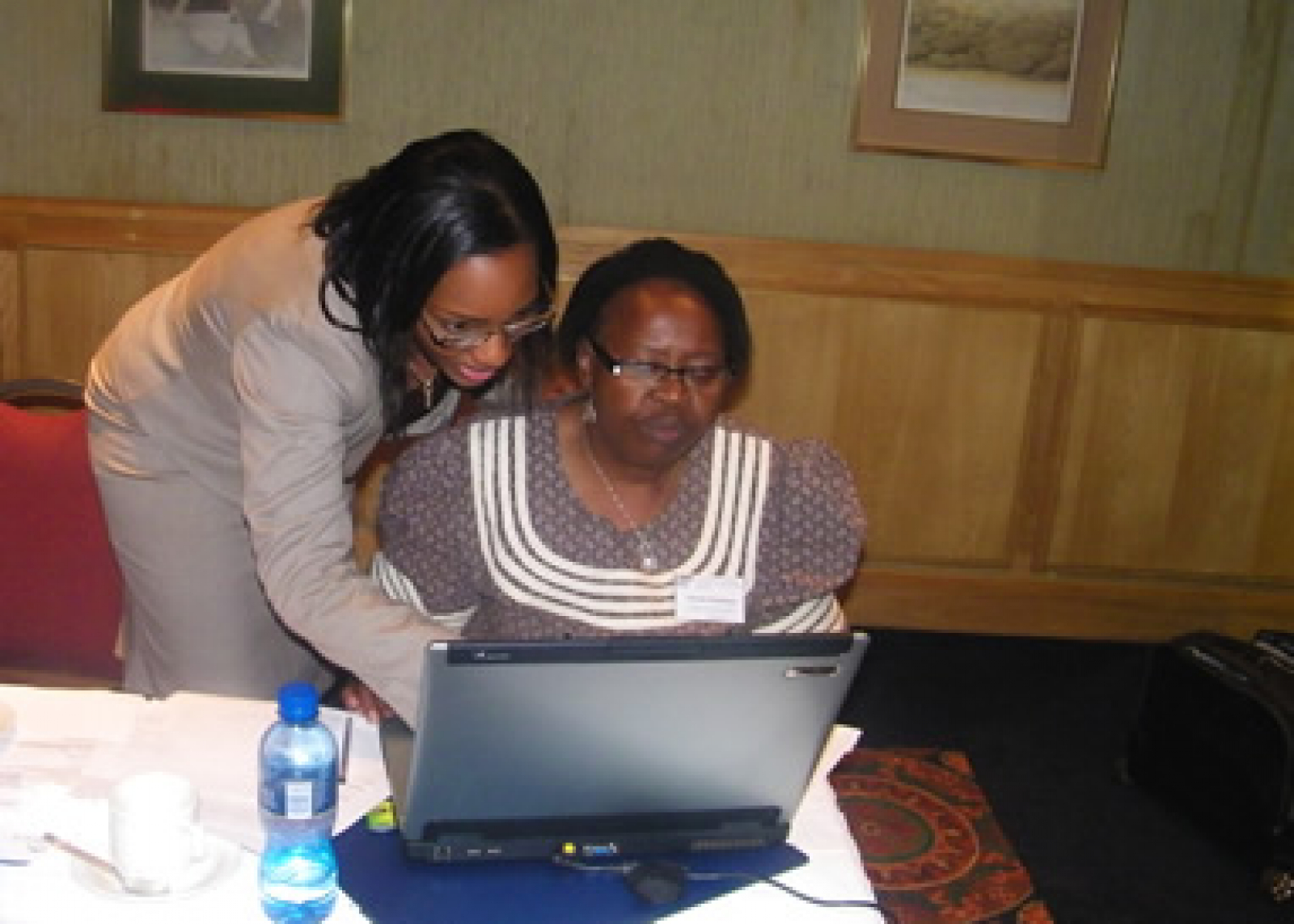
SHARE
The 15 countries that make up the Southern African Development Community (SADC) have been working since 2008 to achieve parity in women's political participation by 2015. It's a goal from the SADC Protocol on Gender and Development, which sets out ways to achieve gender equality through legislation and affirmative action. Some countries have made great strides toward achieving equal numbers of elected men and women, one measure of parity, but Zambia and Lesotho are lagging far behind.
In Zambia, where 14 percent of parliamentarians are women, Zambians are hoping that 2011 national elections will increase women's representation. In Lesotho, a quota system requires that 25 percent of parliamentarians be women, but political party structures and top-level positions remain overwhelmingly male.
To address these challenges, NDI organized a week-long leadership academy in Pretoria, South Africa, in November that brought together women from each of the three main political parties in Zambia and Lesotho. There they were able to network, share experiences and learn from one another and experienced trainers.
The workshop focused on how to run advocacy and political campaigns, and included training in public speaking to prepare the women for national and local elections. They learned and practiced techniques to build coalitions, raise funds and lobby party leaders. Participants wrote a draft campaign plan with budgets, key messages, timelines, campaign strategies and tactics. Established women leaders and seasoned women's rights advocates from South Africa, who led the sessions, shared their personal experiences.
Participants began using the iKNOW Politics portal as a platform for cross-party and cross-country sharing of experiences, strategies and resources after participants returned home. Through the portal women politicians and candidates exchange strategies, stories and advice, as well as seek help from experts in women's political participation from around the world. Mariam Diallo, regional coordinator for iKNOW Politics in Sub-Saharan Africa, made a presentation on the platform and created a discussion circle on the site so the women can communicate with each other as they pursue their political goals in their home countries. iKNOW Politics, created in 2007, is a joint project of NDI, International IDEA, the Inter-Parliamentary Union, the United Nations Development Programme and UNIFEM.
By the end of the week, the women expressed a strong desire to work together to support women in politics. The participants from Lesotho recognized the need for women to work across parties to promote women's empowerment. And, despite Zambia’s history of competitive multiparty politics, Zambian women saw gender parity as a goal that transcended parties and they vowed to continue working together.
The women will use their new skills to strengthen women's branches of their respective parties. They also discussed doing training programs for young women in the parties, building their leadership skills at an early age so they are ready to become leaders. NDI will continue to provide technical support and advice to the participants as they work on new ways of ensuring more women become and remain involved in politics.
Related:
- Indigenous women strengthen leadership skills at Guatemalan academy»
- Leadership academy raises aspirations for young Middle Eastern women»
- Resident Deputy Director discusses women's new political roles in Nepal»
- Young women leaders collaborate at North African regional conference»
Pictured above: Participants work on a campaign plan.
Published December 15, 2010


